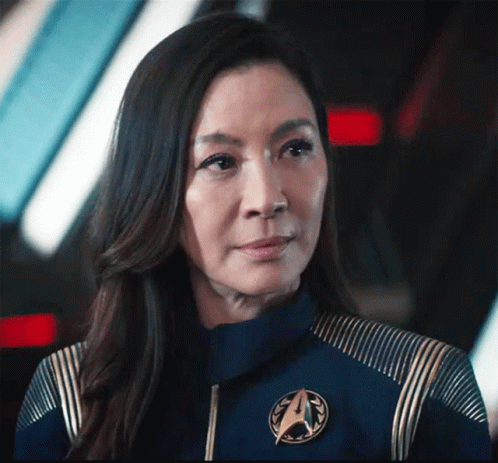The overall Trek philosophy is built on the optimism that humans can change. That we can become better as a people, and work with our differences rather than battle because of them.Some sins are so grievous that it is irrelevant if the sinner makes peace with them. She is canonically a genocidal maniac. I'm not saying it's impossible for the writers to sell an arc that makes her a sympathetic protagonist in the face of this but it's definitely a tough needle to thread and even if they do it I'm not sure how this fits into the overall Trek philosophy to the extent it's been made explicit.
So maybe she can't make peace with her past sins, though that was in another universe. Maybe she works to be better because that's the only way she can atone? Why is that a negative story?
I struggle so hard with this because humanity is dark. We have savage nature, and people struggle with it on a daily basis. I see the darkness of humanity daily sometimes. And I have to safety plan around it and work to aid people in making changes.
If we say the worst of us cannot be changed then there is no hope for any of us.
It does, but we are also talking about someone who grew up in a place where killing and such was a sign of strength. At what point in time is growth not acceptable? Hitler is not acceptable because we know that his morals could be taught to him and he ignored them in favor of dominating the world. Georgiou grew up in a world were savagery was honed to a fine heart as a means of power and survival. Now she has a choice. I welcome exploring that choice.It's not looking down on someone who gained her power by slavery, bigotry, and a soul crushing environment of fear, along with a dash of cannibalism and heaps of torture and cruelty. If the show was about Adolf Hitler getting a puppy and learning the true meaning of friendship, a lot of people would rightfully have a problem with it. That signifies growth for this "ignoble, savage race," wouldn't you think?


